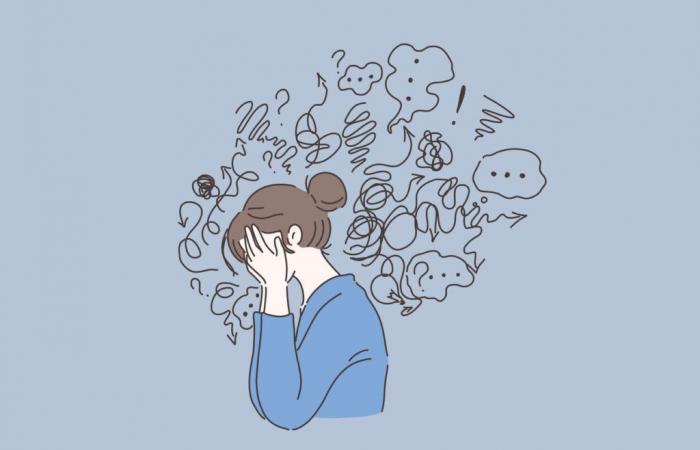When we think of side effects of medicationwe imagine digestive disorders, but rarely a depressive syndrome. However, a study published in the magazine European Heart Journal October 3 suggests that beta blockers may increase symptoms of depression in patients who have undergone a myocardial infarctionin which the functioning of the left ventricle of the heart is preserved.
The studywhich ran from August 2018 to June 2023 and was conducted by 45 centers in Estonia, Sweden and New Zealand. The researchers collected data from 806 participants on levels of anxiety and depression at three different times after myocardial infarction: just after hospitalization, 6 to 10 weeks later, and 12 to 14 months later. The participants were divided into two groups: one receiving a beta-blocker, and the other without treatment.
To assess symptoms of depression, researchers used a named rating scale Hospital Anxiety and Depression Scale. At the start of the study, 27% of patients were possible cases of anxiety and 14% were possible cases of depression. “We found that medication led to slightly higher depression symptoms in patients with myocardial infarction and preserved left ventricular function,” said Dr. Philip Leissner, doctoral student in cardiac psychology and lead author of the study.
The observed effect was more pronounced in people who had already received beta-blocker treatment. “When initiating and continuing routine beta-blocker treatment, the risk of a slight increase in depressive symptoms should be taken into account“, specify the authors of the study.
Beta blockers are essential treatments in prevention of side effects following a myocardial infarction. They reduce the workload placed on the heart and prevent heart failure. Some allow the heart to strengthen and protect yourself from stress. I They prevent the action of hormones such as adrenaline and norepinephrine on the heart. The heart rate and blood pressure are then slowed.
A study that requires more research
Among the 806 participants, 77% were men with an average age of 64.7 years, most frequently smokers. Of all the participants, only 657 completed follow-up until the end of the study.
The participants who left follow-up before its end tended to be youngerto suffer more often from diabetes, to have a lower level of education, to smoke, taking psychotropic medicationsto be less physically active and to report higher levels of anxiety and depression at first.
The researchers, however, report that some limitations to their study. “This sample of patients with myocardial infarction, whose left ventricular ejection fraction is preserved and who have no contraindications to beta-blockers, is probably healthier and seems less depressed than the typical patient who has suffered a heart attack”, they emphasize. The authors suggest that further research are necessary to obtain conclusive evidence.
Symptoms to watch out for
While waiting to have more perspective on the effect of beta-blockers on depressive syndrome, it is recommended to inform your doctor if your mood changes. A depressive episode is characterized by the appearance of a low mood, a feeling of emptiness or irritability, as well as the inability to experience pleasure.
Other symptoms may also appear :
- difficulty concentrating
- sleep disorders
- loss of appetite
- fatigue intense
- loss of energy
- feelings of guilt
Health






